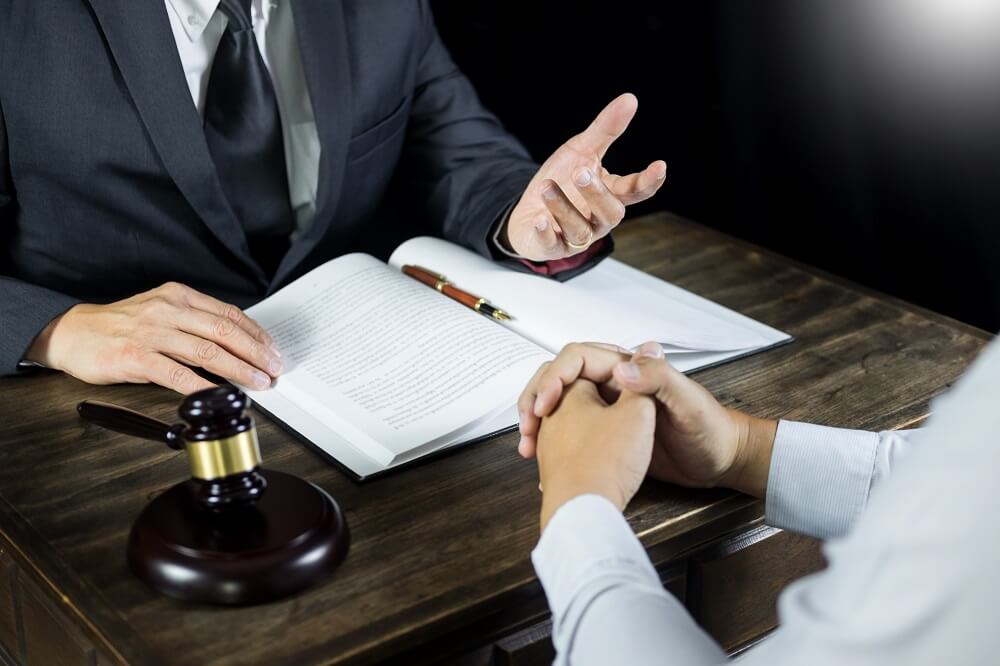
Most personal injury cases settle out of court through negotiations with the at-fault party’s insurance company. This means that the insurance company has offered the accident victim a specific amount of money based on what they’ve suffered, and the victim has accepted that amount in exchange for waiving their rights to sue for additional compensation.
However, you might need to file a lawsuit if you’ve been hurt in a crash and the insurer fails to offer you a settlement package that will cover your accident-related losses. This will include a pre-trial stage in which every party involved in the lawsuit must sit for a deposition with the opposing party’s attorney and answer questions.
Many people feel understandably nervous about this process. But the more you know about what a deposition is, what is likely to happen, and how to prepare, the more confident you will feel about your performance. And when you work with the right personal injury lawyer, you can approach your deposition in a way that will strengthen your case.
What Is a Deposition?
A deposition is a legal interview that takes place during the discovery process in a personal injury lawsuit. In the context of your personal injury claim, it is an interview session in which the at-fault party’s attorney will question you about the accident, your injuries, your medical treatments, and other aspects of your case. A court reporter will be present to record the conversation in writing.
One of the most important aspects of your deposition is that it will take place under oath. That means giving truthful answers is critical. However, you can have a personal injury attorney present with you during the process who can help you answer in a way that won’t harm your case.
What Is the Purpose of Taking Depositions?
One of the main reasons for depositions is to allow your lawyer to find out what the other side’s attorney knows about the case and vice versa. Each side’s goal is to discover factual information that can help their client. Both attorneys will look for any evidence or testimony they can use to discredit the other side and support their own cases.
For example, if you provide conflicting accounts of the accident during the deposition and trial, the other attorney will likely point this out to the jury. They might also look for parts of your history or character that they can use to question your credibility.
What Makes Depositions Important to a Case?
In addition to the information it reveals about the case, a deposition is significant because it gives you an opportunity to present yourself to the at-fault party’s legal team. If you have the facts on your side and answer your questions honestly and calmly, the defense attorney might report to the insurance company that you made a favorable impression. This could pressure them into offering a fair settlement before the case reaches the courtroom. However, if you seem unprepared or unable to keep your story straight, the other side could get opportunities to undermine your case.
Where Do Depositions Usually Take Place?
Depositions usually take place in a lawyer’s office, with both attorneys present. In some instances, the deposition might occur in a neutral office space.
What Questions May Be Asked During the Deposition?
While the exact phrasing can vary, you should expect the defense attorney to ask probing questions about the following topics during your deposition:
- The accident itself – You will need to provide a detailed account of how the accident happened, where you were, what you were doing, and what actions preceded it.
- Your background and lifestyle – To assess your credibility, questions might cover your job history, earnings, education, habits, hobbies, past claims or lawsuits, criminal record, and more.
- Your injuries – Expect questions on the exact nature of the harm you suffered, your symptoms, your diagnoses, and how the injuries affect your daily functioning.
- Medical treatment – The other side will likely ask what treatments you have undergone, including treatment dates, types of appointments, and the specifics of each treatment.
- Causation – To weaken the link between the accident and your injuries, the other attorney will likely ask questions about pre-existing conditions or other possible causes.
- Your losses – You will need to account for every category of compensation you are claiming, including medical costs, lost wages, and pain and suffering.
- Witnesses and evidence – The other side will likely ask what documentation or testimony supports your version of events and connects your injuries to the incident.
Can I Decline to Answer a Question?
In general, you must answer each question in a deposition – and you must do so truthfully. If there is an issue with a question or how it is asked, your attorney can object to it. However, in some instances, you might be required to answer even after the objection. The court will rule later whether to sustain the objection, determining whether the answer is admissible as evidence.
Are There Things I Should Not Say at a Deposition?
While you must answer every question truthfully, there are several things you should avoid doing or saying during the deposition:
- Volunteering information – Do not offer additional information or details beyond what the other side asks of you. If you get a yes-or-no question, just answer “yes” or “no.”
- Speculating – If you do not know the answer to a question, simply say that you do not know. Never guess, assume, or estimate while under oath.
- Admitting fault – Even if you believe you might partially be at fault for the accident, remember that it is not your job to determine that. Never apologize or admit fault.
What Are Some Tips for the Deposition Process?
Here are some tips to keep in mind before and during the deposition process:
- Always tell the truth.
- Listen carefully and ask for clarification if necessary.
- Answer as concisely as possible.
- Review case files and notes to prepare.
- Meet with your attorney to practice in advance.
- Speak clearly and make eye contact.
- Ask for breaks if necessary.
Contact a Personal Injury Lawyer Today
If your compensation claim is heading to trial, you need the knowledge and resources of an experienced personal injury law firm on your side. The skilled trial lawyers at The Wilhite Law Firm have a proven track record helping Colorado and Texas injury victims recover the compensation they deserve. Contact us today for a free consultation to learn more about how we can help you.






















